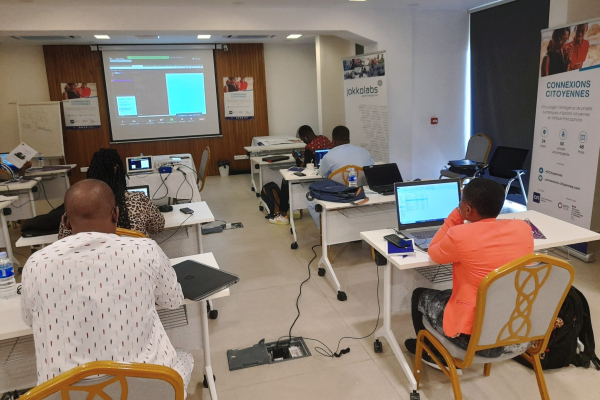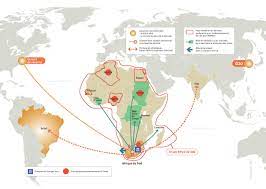Climate change is one of the greatest challenges humanity faces today. While efforts to address it rely on various approaches, artificial intelligence (AI) offers new opportunities to find effective solutions. Let’s explore how AI can contribute to combating climate change:
- Energy Consumption Optimization
One of the most promising areas where AI can make a difference is in optimizing energy systems. Through machine learning algorithms, it is possible to improve energy efficiency across different sectors:
- Renewable Energy: AI can accurately predict energy production from renewable sources like wind and solar, allowing for better grid management and reduced waste. AI models can also optimize the integration of these sources into energy grids.
- Smart Grids: Smart grids, combined with AI, can automatically adjust energy distribution based on demand, thus reducing losses and improving the overall efficiency of the system.
- Natural Resource Management
AI enables more efficient monitoring and management of natural resources, such as water and forests, which play a crucial role in climate regulation:
- Ecosystem Modeling: AI tools can analyze large amounts of data from satellites and sensors to better understand natural cycles and detect anomalies. This allows for proactive resource management to prevent deforestation and ecosystem degradation.
- Precision Agriculture: With smart sensors and AI, water and fertilizers can be used more efficiently, reducing the carbon footprint of agriculture and limiting resource use.
- Climate Monitoring and Modeling
AI is also used to improve climate models by providing more accurate predictions and enabling the simulation of climate change impact scenarios:
- Advanced Weather Forecasting: Deep learning models help better anticipate extreme weather events (hurricanes, droughts), providing more lead time to minimize damage.
- Improved Climate Models: AI can process more complex and varied data to refine models that predict temperature changes, precipitation levels, and ice melt.
- Carbon Emission Reduction
AI can play a central role in reducing carbon emissions by helping identify sectors where reductions can be maximized:
- Transport Optimization: AI can improve public transport management, reduce traffic congestion, and optimize routes for truck fleets, thus lowering CO2 emissions.
- Sustainable Design: AI helps optimize building designs to maximize energy efficiency. Smart systems can adjust real-time energy consumption in buildings based on occupancy or external weather conditions.
- Development of New Green Technologies
AI also facilitates innovation in developing green technologies:
- Sustainable Materials: Through computer simulations and machine learning, AI can help discover new, less polluting, and more energy-efficient materials.
- Carbon Capture and Storage: AI algorithms can optimize carbon capture processes from the atmosphere and improve storage systems, a key technology to achieve carbon neutrality.
- Awareness and Decision Making Finally
AI can help raise public awareness and improve decision-making on climate issues:
- Alert and Information Systems: AI models can alert decision-makers to upcoming environmental risks and suggest preventive actions.
- Public Education: AI can also be used to develop awareness tools, making climate issues more accessible and understandable to the general population.
Conclusion
Artificial intelligence represents a powerful tool for tackling the challenges of climate change. It can contribute to reducing emissions, improving resource management, optimizing energy efficiency, and predicting climate impacts. However, AI alone will not be enough: it needs to be combined with ambitious public policies, civic engagement, and a willingness to fundamentally transform our economic and industrial systems. In short, AI can provide solutions but requires thoughtful and responsible integration to maximize its impact.



